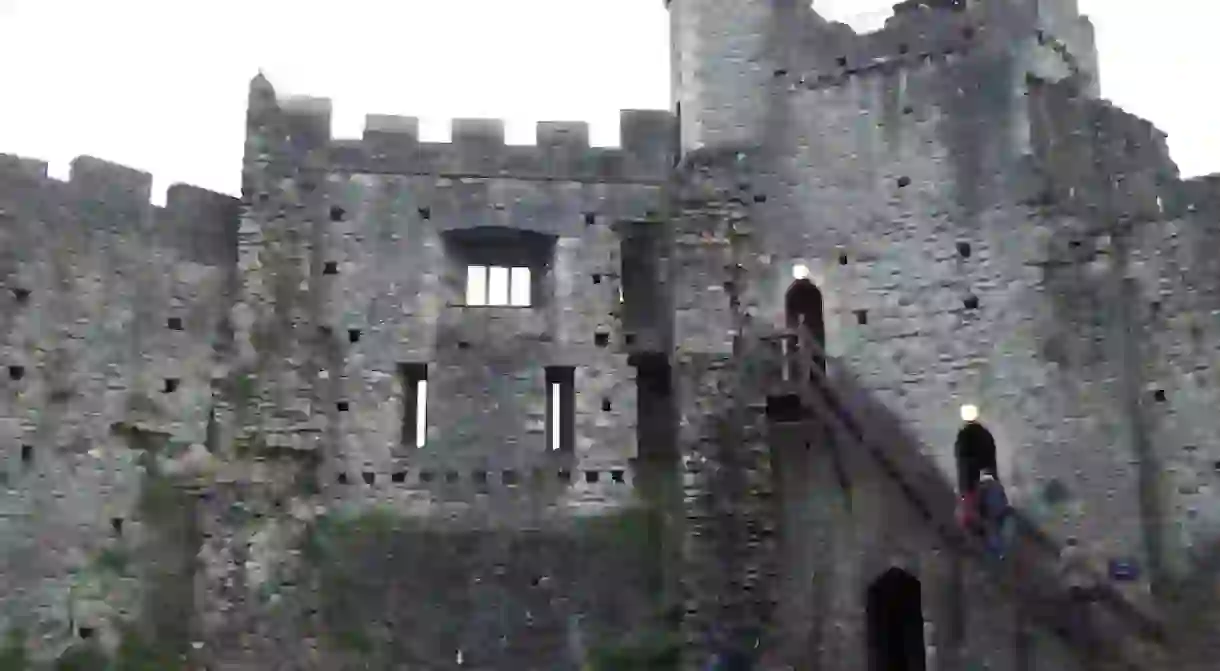10 Historical Sites to Visit in and Around Cardiff

Cardiff and its surrounding area is steeped in history, and there is so much to see and do. A trip to these sites offers an insight into the past and the ways of our ancestors as well as the beauty that Wales has to offer. So during your time in Cardiff, do try to visit these wonderful historical places.
Cardiff Castle
Cardiff Castle is a medieval complex with a range of styles and with a diverse history. A monumental fixture in the Cardiff cityscape, the castle has stood proudly in the capital since the 11th century. Its magnificent walls and battlements are well known and make it a unique historical site.

Castell Henllys
Situated between Newport and Cardigan, Castell Henllys is an Iron Age inland promontory fort, which has been excavated for over 20 years. A visit to Castell Henllys is a window back in time to our prehistoric past. You can see how people lived in the Iron Age, what their houses looked like, how they dressed and how they went about their daily life. Enter the roundhouses, soak up the atmosphere of a bygone era and imagine what life must have been like.

St Fagans National History Museum
Visit this 100-acre open air museum and learn about Wales’ historical past. There are re-erected buildings from various ages, including old schools, butchers, bakers, ironsmiths, and workmen’s institutes. On the grounds, you’ll also see native breeds of livestock, currently farmed, as well as seasonal celebrations of traditional music, dance and festivals.

Caerphilly Castle
Dominating an impressive 30-acre site, Caerphilly Castle is Wales’ largest and Britain’s second largest castle after Windsor. It is famous for having introduced concentric castle defences to Britain and for its large gatehouses. The core of Caerphilly Castle, including the castle’s luxurious accommodation, was built on what became a central island, surrounded by several artificial lakes.

Big Pit National Coal Museum
A working coal mine from 1880 to 1980, Big Pit National Coal Museum is an industrial heritage museum in Blaenavon. The site is dedicated to the operational preservation of the Welsh heritage of coal mining, which took place during the Industrial Revolution. The museum features a range of above ground attractions including a winding house, saw mill, pithead and baths. Visitors are also able to see working below ground where there is a tour of the mine workings.

St Govan’s Chapel
St. Govan’s Chapel is a chapel located at St. Govan’s Head, Pembrokeshire in south west Wales. Built into the side of a limestone cliff, the construct consists of two chambers, one in the front and one in the back. Much of the chapel was built in the thirteenth century, although parts of it may date back further to the sixth century when Saint Govan, a monk, moved into a cave located on the site of the chapel. It is accessible via a set of stairs that reach down from the clifftop, and rumour has it that the number of steps continually differs.

St Lythans Burial Chamber
Known locally as gwal-y-filiast – kennel of the greyhound bitch – this single stone chamber is all that remains of a once much larger burial monument. The chamber now consists of three upright stones with a capstone weighing around 35 tonnes. How long it was used for and who was buried here are questions that remain unanswered, but human remains recovered from the site from the early Neolithic period have been recorded.

Blaenavon Ironworks
Just an hour outside Cardiff is Blaenavon Ironworks, a site of crucial importance in the development of the ability to use cheap, low quality, high sulphur iron ores worldwide. Now a museum, you can view the once cutting-edge technology up close and personal. The ironworks itself is only one part of the story. The surrounding landscape is also revolutionary in its form and function. From mines to train lines, you can still trace the routes in and routes out, from raw material to finished product.

Caerleon Roman Fortress and Baths
The remains on view at Caerleon provide the visitor with a vivid picture of life in second-century Roman Britain. Known as Isca to the Romans, the fortress itself was a playing-card shape, covering 50 acres of land in which the Museum now lies. It features open air swimming pools, a bath suite, and the remains of what was a Roman Amphitheatre.

Castell Coch
Translated as the red castle, this gothic building overlooks the village of Tongwynlais and the River Taff. It was rebuilt in the 19th-century – a whole 500 years after its initial destruction. The woods surrounding the castle, known as the Taff Gorge complex, are among the most westerly natural beech woodlands in the British Isles. They provide a spectacular backdrop to one of Cardiff’s most interesting and popular historical sites.














